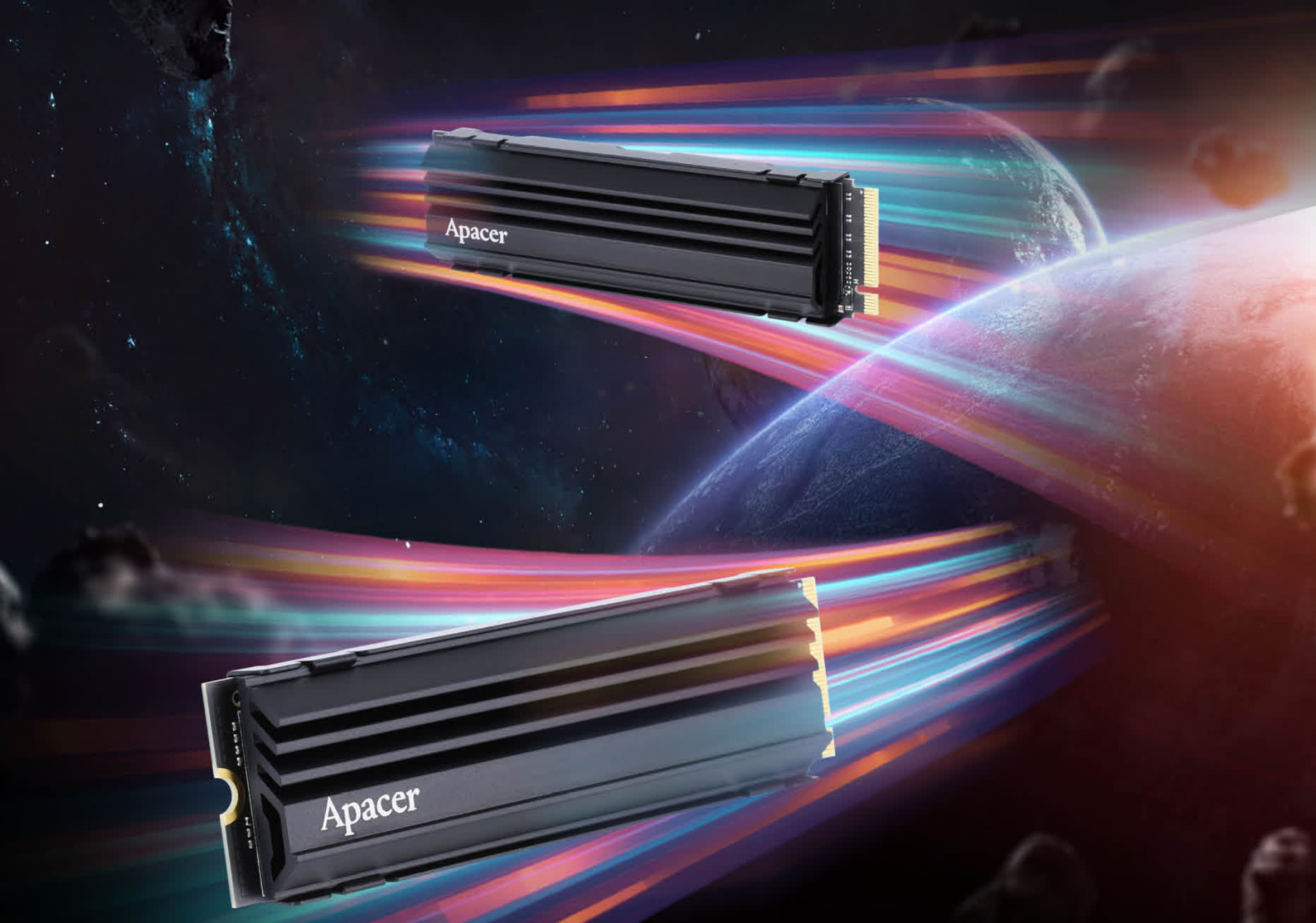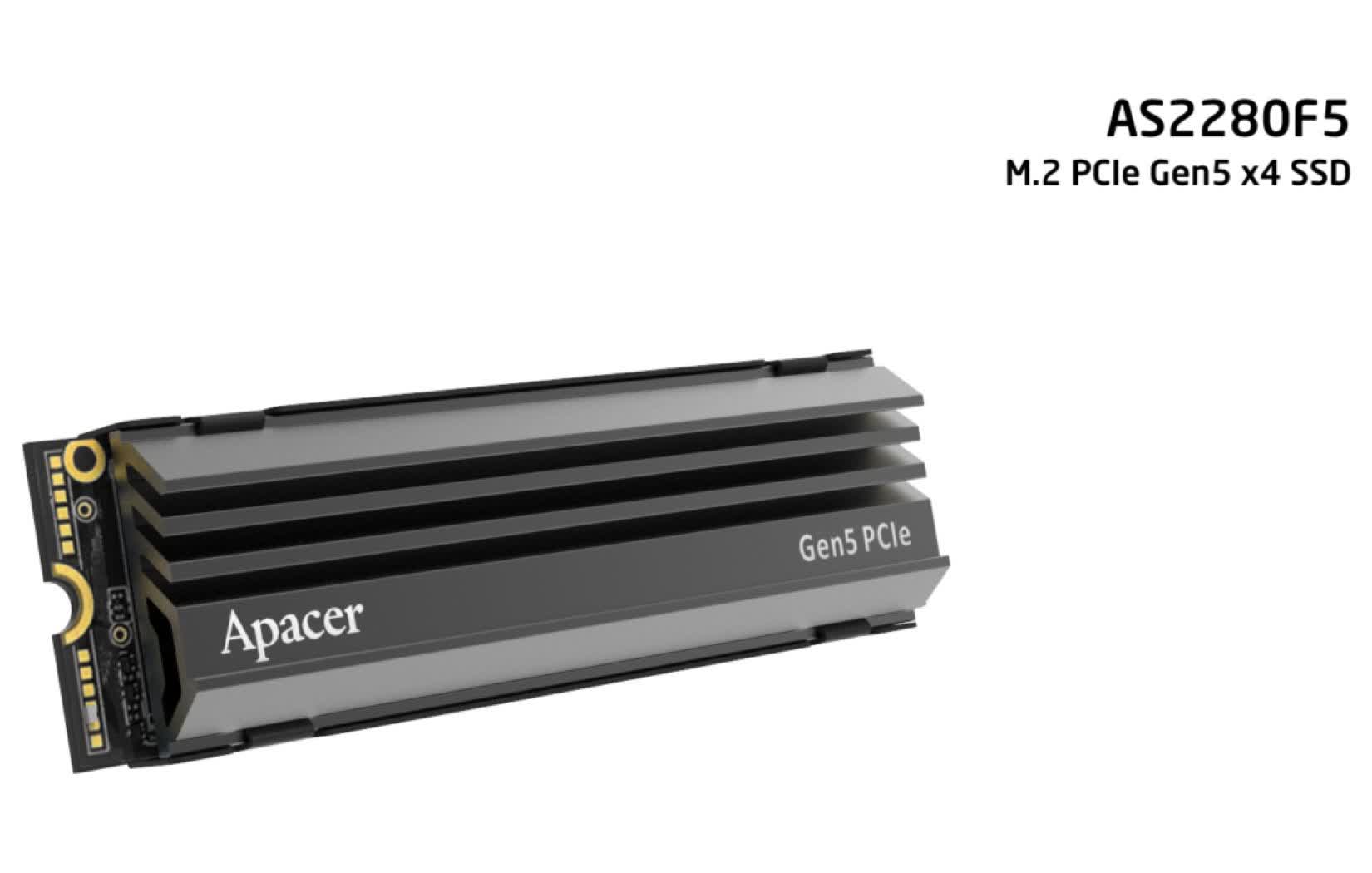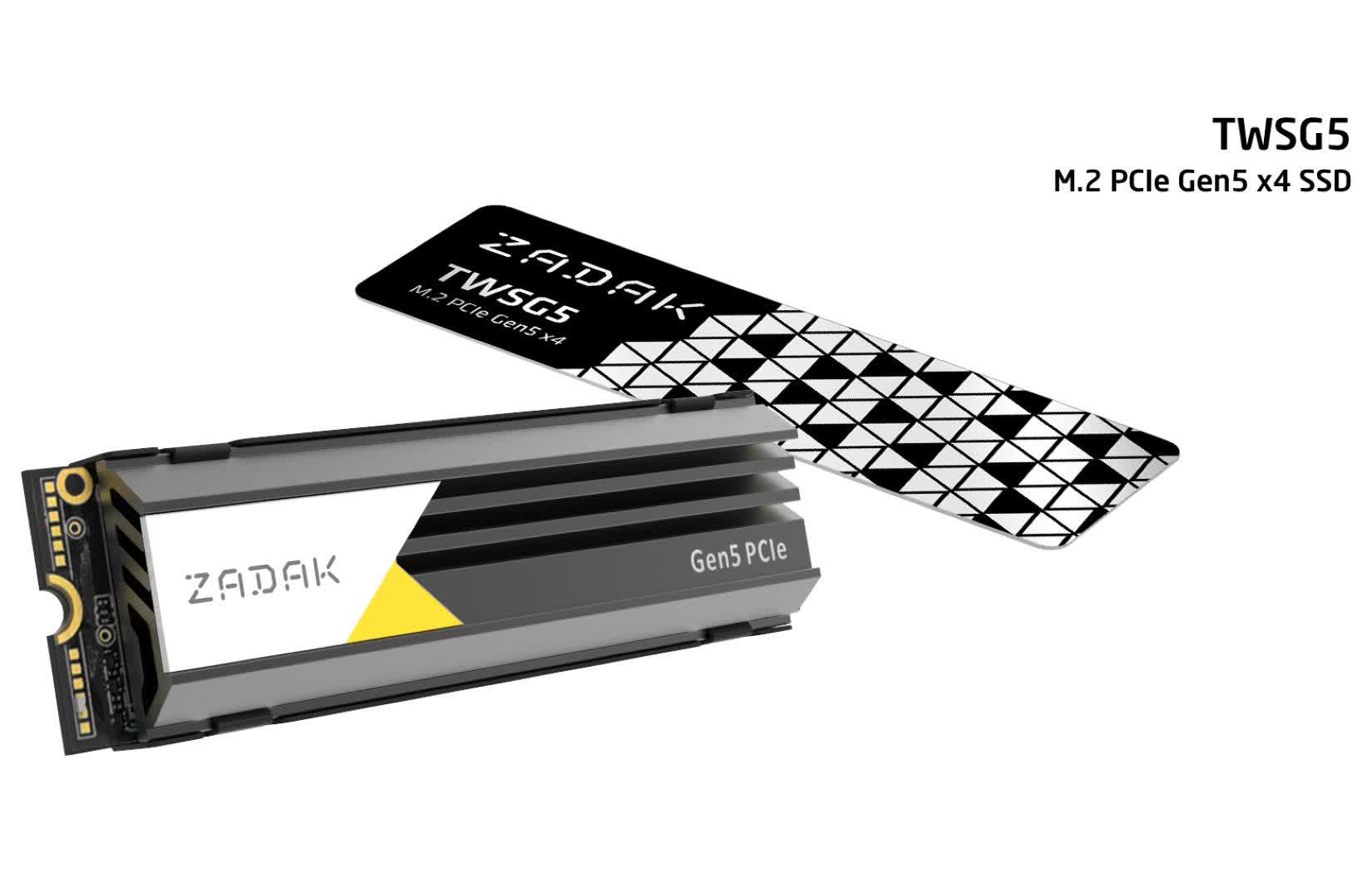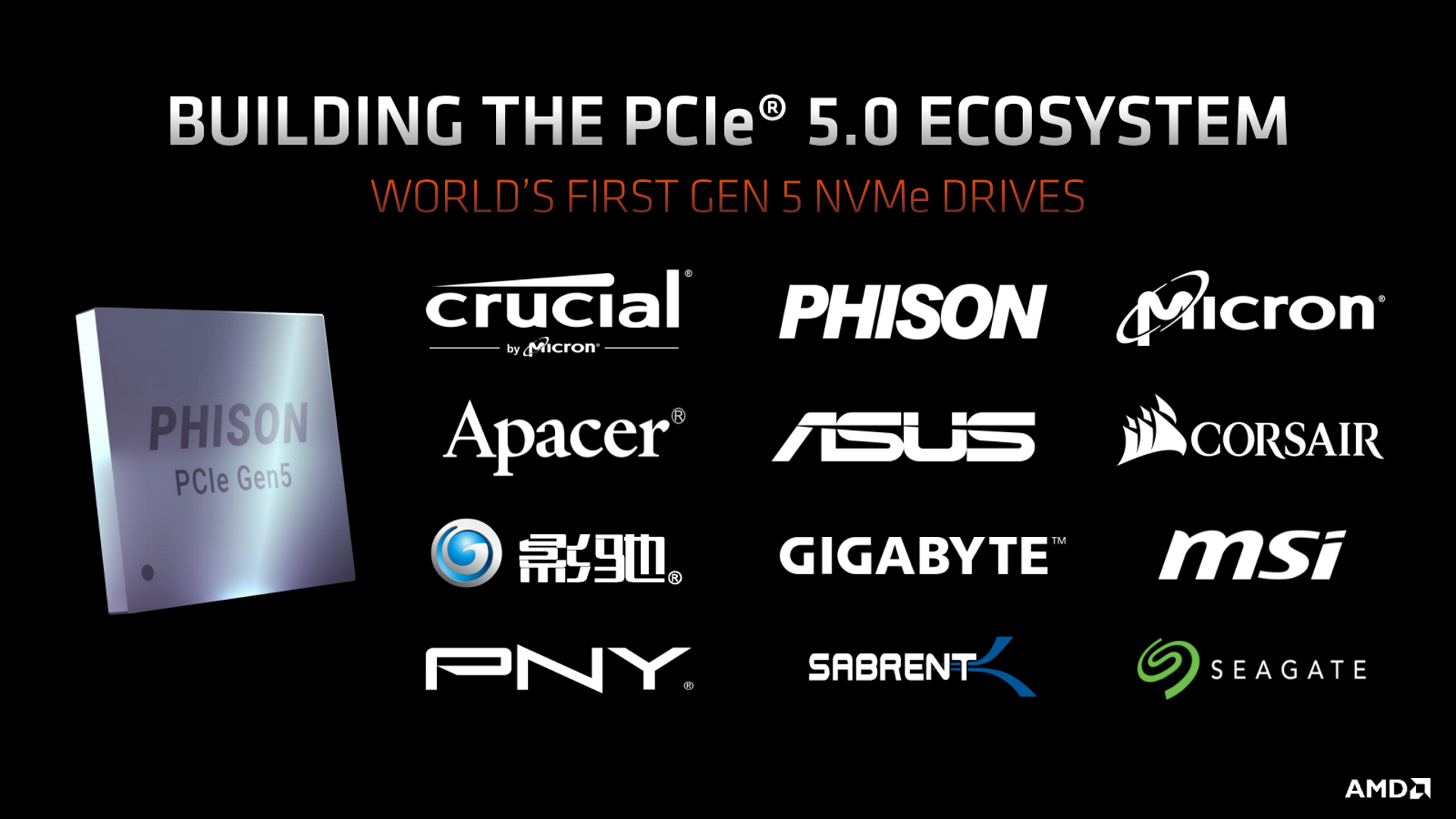Something to look forward to: Consumer PCIe 5.0 NVMe SSDs are coming this year, and that's good news if you own a supported Alder Lake motherboard or plan to jump on AMD's Zen 4 AM5 platform. At Computex 2022, Apacer has announced two of these storage solutions, both of which offer transfer speeds of up to 13,000 MB/s.

The first of the two SSDs, the AS2280F5 M.2 PCIe Gen5 x4 SSD, supports the latest NVMe 2.0 standard. It is backward compatible with PCIe Gen 4, but it will need connecting to a PCIe 5.0-compatible board to hit read speeds of 13,000 MB/s and write speeds of up to 12,000 MB/s—double what the PCIe 4.0 connection offers.
Elsewhere, the drive features an aluminum heatsink and multiple protection technologies to ensure the correctness and stability of data.
Next is the Zadak TWSG5 Gen5 x4 SSD. This has most of the same specs as the AS2280F5, including read/write speeds and backward compatibility with Gen 4, but it does offer two types of heat sinks: ultra-thin graphene and aluminum.
No word on the drives' capacities or prices, but you can expect them to be priced a fair amount higher than PCIe 4.0 SSDs, obviously. They do both come with a five-year warranty, which is always reassuring.
We've seen a few consumer PCIe 5.0 SSDs teased recently, including ones from Adata, Samsung, and TeamGroup. Intel, meanwhile, showed off an Alder Lake system with a PCIe 5.0 SSD hitting almost 14 GB/s back in December.
AMD, which has revealed a slew of details about its Zen 4 architecture during Computex, has confirmed that the first PCIe 5.0 SSDs will arrive alongside its new platform later this year. The company is working with several manufacturers, including Apacer, to ensure they're ready on time.
h/t: VideoCardz
https://www.techspot.com/news/94694-apacer-reveals-pcie-gen-5-nvme-ssds-13000.html


